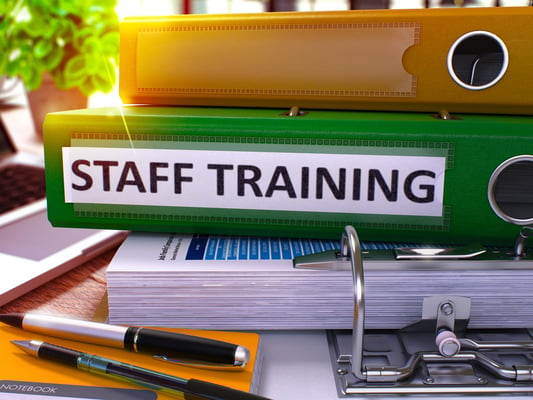What makes a good restaurant staff? Is it that they smile? Can double-stir cocktails? Sure, hospitality and talent are big factors for that. But a good restaurant staff is a well trained restaurant staff. Training can seem like an onerous task, but you can make it fun. Disguising education as fun is the sleight-of-hand performed by every school teacher that's ever dragged a classroom's worth of 10-year-olds through a zoo. If you want to up your staff's knowledge and skill level, try these fun training ideas for restaurant staff.
Take Them Where The Magic Happens
Field Trip! A really fun activity for staff training is to take them to a local winery, brewery, or distillery. It's the perfect way to gain a better understanding of how alcohol goes from grain (or grape) to glass. It gives your staff a stronger connection to the products they sell too. It's a lot of fun to see a production line, and learn from the people who have a hands-on role in producing the bottles you stock your shelves with.
Not only will your staff learn more about alcohol production, but they'll be able to talk more confidently to customers about your products and they will have a personal connection to the brands they've seen made in-person. This connection will result in more sales that are spurred by the best possible sale's tactic: a genuine love and respect for what you're selling.
So Close You Can Taste It
A restaurant worker's two favorite things are cash tips and stiff drinks. So giving them a chance to learn about your products by tasting the products is something that they'll jump at the chance to do. A staff-wide tasting is great because you can really focus in on certain aspects of your menus for each tasting.
The best way to approach this is to run a series of tastings. Have one focus on wine, one on beer, one on cocktails, one on spirits, and one for food. This way, you avoid a staff that gets too tipsy during the tastings. You don't want a drunk staff because, well, for obvious reasons. The biggest one being that it's a waste of time because no one will take it seriously. So keep your tastings focused and limited.
Here's an example: Do you want to have your staff sell more rosé in the summer time? Have a rosé tasting in April that is only focused on those wines that you carry.
Tastings also build staff camaraderie by letting people hang out together in a more social setting.
Just remember, for any alcohol tasting, also provide food to eat while tasting. Even if it's just bread, you'll want something to munch on after the third wine.
Teach An Old Maestro A New Tune
Sometimes it's easier to learn something from someone other than your boss. Using your connections with your product suppliers and distributors is a great way to train your staff. Who is your sales rep for your distributor? Are they able to come in and do a staff training on their products for your staff?
Or, better yet, connect with your supplier's Brand Ambassador to teach a staff training for you. Brand Ambassadors are the stewards and educators for their company's products. If you're a whiskey bar, bring in a bourbon brand ambassador to give your staff top shelf knowledge about whiskey history, production, and your brands in particular.
As professional educators, Brand Ambassadors have a knack for creating engaging training that is comprehensive and focused on giving you information that will help you sell their products. It's a great way to get your staff to listen up. Because sometimes they're not tired of listening, they're just tired of listening to you.
Resources and Research Material
The best workers are curious. They want to learn. They will go out and find materials that will give them knowledge and a greater ability to do their job.
Their are countless books and reading materials available on all things related to alcohol. Offer a wide selection of material that your staff can utilize. If you have the space, use your office to create a sort of library in the where staff members can "checkout" material to learn from. This library and just be a small section on a shelf reserved for educational materials.
Whether you stock beer books, wine maps, or whiskey bibles, create a culture of learning at your restaurant. That culture can be contagious. And while this self-motivated learning won't be for everyone, you'll be creating the perfect environment for curious and high-performing staff members to thrive in. That means that they'll want to stick around for longer.


